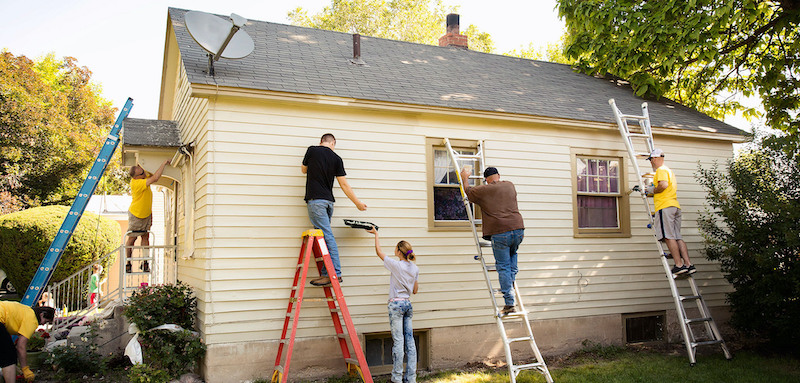Pros and Cons of Buying a Fixer-Upper Property

Pros and Cons of Buying a Fixer-Upper Property in Australia.
The idea of purchasing a fixer-upper property and transforming it into your dream home can be both exciting and daunting. While there are potential rewards associated with buying a property in need of renovation, there are also risks and challenges to consider. In this article, we will discuss the pros and cons of buying a fixer-upper property in Australia to help you make an informed decision.
Pros of Buying a Fixer-Upper Property
-
- Lower Purchase Price
One of the most significant advantages of buying a fixer-upper is the potential for a lower purchase price. Properties requiring work are often priced below market value, making them more affordable for buyers with a limited budget. This can be particularly appealing in Australia, where property prices have been on a steady upward trajectory in recent years.
-
- Potential for Profit
If you're willing to put in the time and effort to renovate a fixer-upper, you may be able to increase the property's value and sell it for a profit. This can be a lucrative investment strategy, especially in areas experiencing strong growth or high demand.
-
- Customisation Opportunities
Purchasing a fixer-upper allows you to customise the property to your preferences and requirements. Renovating an older home provides an opportunity to create a unique living space that reflects your taste and suits your lifestyle.
-
- Entry into a Desirable Location
Fixer-uppers are often found in established neighbourhoods with a strong sense of community and desirable amenities. By purchasing a property in need of renovation, you may be able to enter a sought-after location that would otherwise be unattainable due to high property prices.
_________________________
Read more:
Can you shorten your home loan term?
Consequences of Late Home Loan Repayments
How does rising inflation affect your borrowing power?
_________________________
Cons of Buying a Fixer-Upper Property
-
- Unexpected Costs
Renovating a fixer-upper can come with hidden costs that may not be apparent during the initial inspection. Structural issues, plumbing or electrical problems, and unforeseen complications can lead to a significant increase in the overall cost of the project. It's essential to have a contingency budget in place to account for these unexpected expenses.
-
- Time and Effort
Renovating a property requires a significant amount of time and effort, particularly if you're planning to do some or all of the work yourself. The renovation process can be lengthy and may disrupt your day-to-day life, so it's crucial to be prepared for the challenges that come with taking on a fixer-upper.
-
- Financing Challenges
Obtaining financing for a fixer-upper can be more difficult than for a property in good condition. Lenders may be hesitant to provide loans for properties that require substantial work, so you may need to explore alternative financing options or have a larger deposit saved.
-
- Building Regulations and Permits
Renovating a fixer-upper in Australia may require adherence to strict building codes and regulations, as well as obtaining necessary permits. Navigating these requirements can be complex and time-consuming, potentially delaying your renovation timeline and increasing costs.
Buying a fixer-upper property in Australia comes with both potential rewards and risks. The opportunity to purchase a property at a lower price, customise the space, and enter a desirable location can be appealing. However, the challenges associated with unexpected costs, time and effort, financing, and navigating building regulations should not be overlooked. Thorough research, a realistic budget, and careful planning can help you determine whether a fixer-upper is the right choice for your property journey. You really need to consider these Pros and Cons of Buying a Fixer-Upper Property before you proceed and seek expert and seasoned advice.
Speak to a mortgage broker today about the Pros and Cons of Buying a Fixer-Upper Property and the finance options related to your next investment or home purchase.




